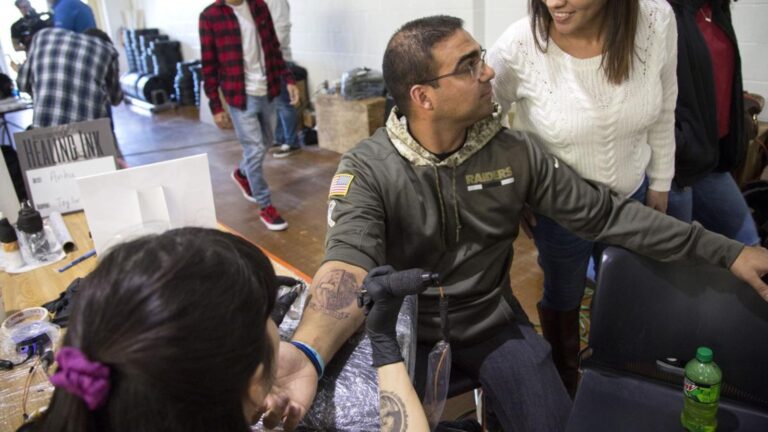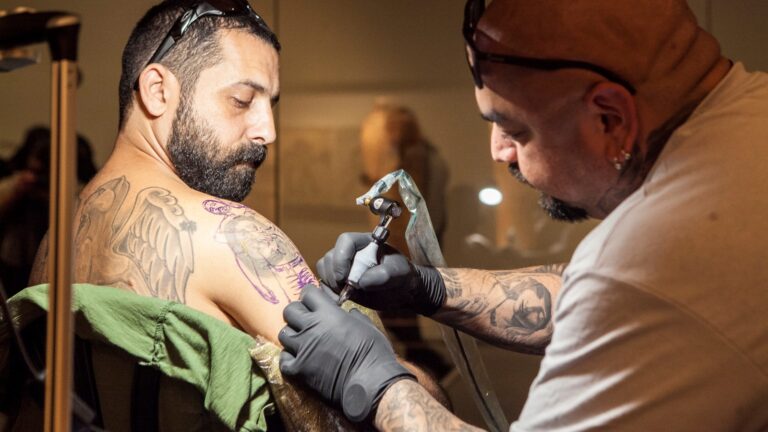Tattoo artist Wassim Razzouk does not bother with trends in the ink business. People from around the world come to his studio in the Old City of Jerusalem in search of a classic Coptic tattoo.
Said to be the only surviving pilgrimage tattoo business in the world, Razzouk Tattoo studio is a popular stop on the Christian tourist’s visit to Jerusalem.
Dozens of times a day, tour guides stop in front of his shop to explain the Razzouk legacy. Tourists take photos outside the Razzouk Tattoo sign just as they would at other landmarks in the Old City.
Family lore tells of the Razzouk family first tattooing Coptic Christians in Egypt in the 14th century with a small cross on the inside of the wrist to grant them access to churches, and in the 18th century bringing the trade to the Holy Land.
Razzouk, 44, set up his studio in a 350-year-old stone building just inside the Jaffa Gate, lined with framed articles about his family history.
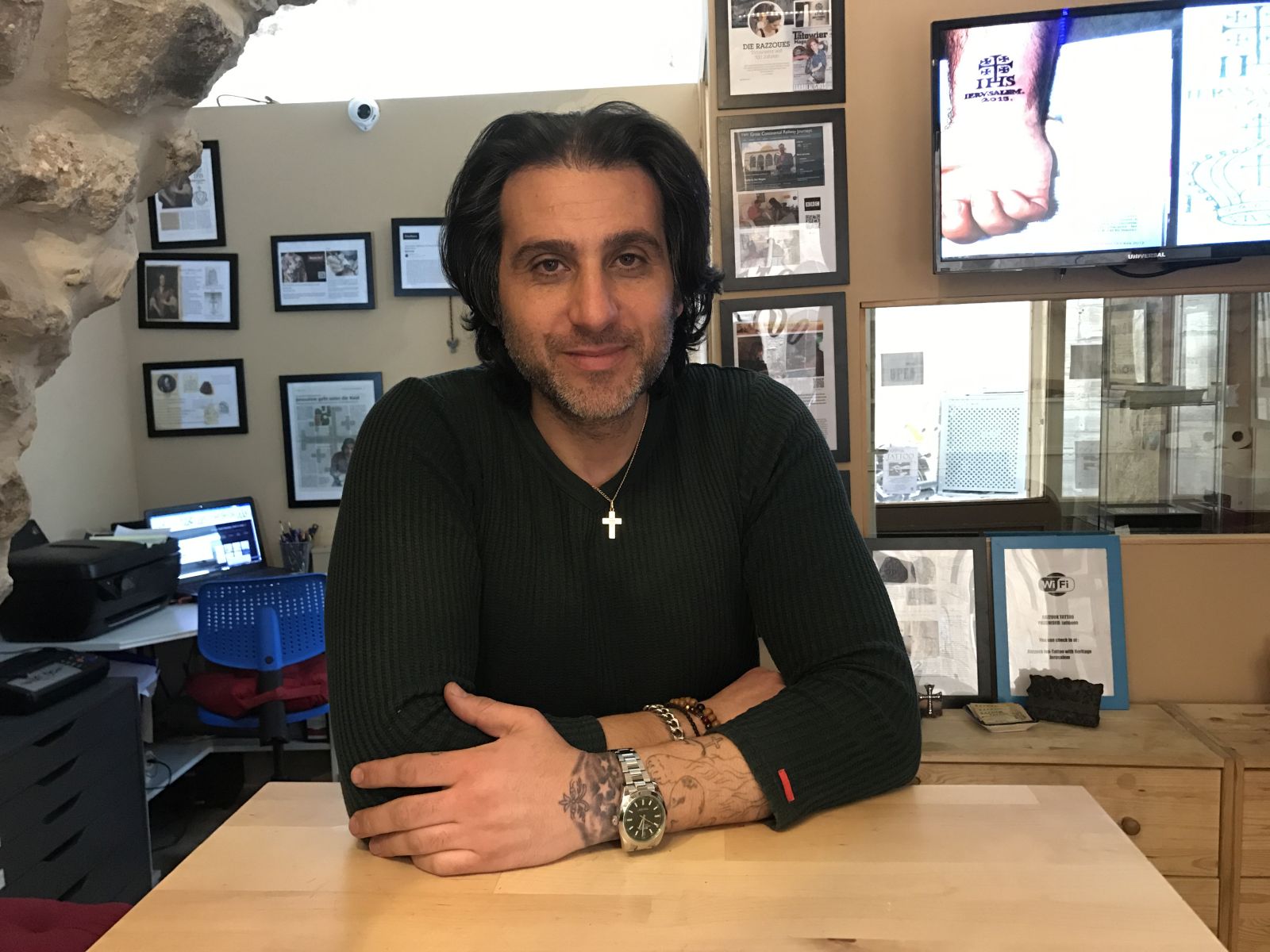
“When people come in here, they feel they’re in a place that is special. I want them to feel comfortable,” Razzouk tells ISRAEL21c, noting his clientele is generally older than at other tattoo parlors.
“The tattoo that I give them is a symbol of their journey to the Holy Land. It’s a souvenir, a source of pride of their Christianity and of their pilgrimage to the Holy Land.”
Razzouk uses 500-year-old wooden hand-carved stamps of religious designs as stencils. After stamping the outline on a client, Razzouk uses a contemporary tattoo gun to ink the tattoo.
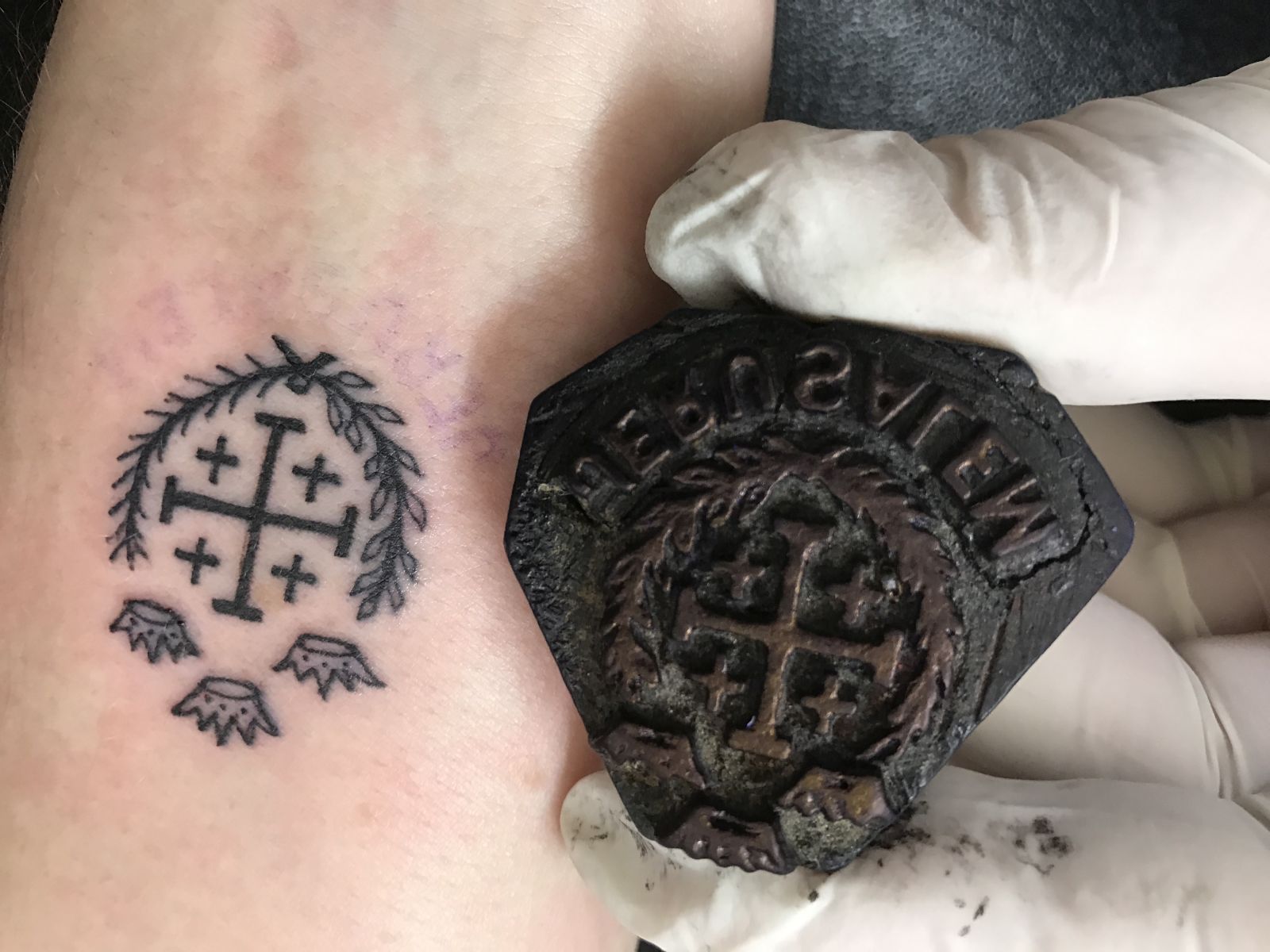
Brittany Doulaghsingh, a Canadian tourist from Ontario, read up about the pilgrim tattoo art form before coming to Israel on a group tour.
“I heard that Razzouk Tattoo uses the blocks and that this is something different. That the medieval pilgrims actually got these tattoos, I thought that is an awesome piece of history,” 28-year-old Doulaghsingh tells ISRAEL21c.
She chooses an outline of a Jerusalem Cross — a large cross in the middle with four smaller crosses at each corner — for her arm. Razzouk dabs the block in ink and stamps it on her forearm.
“This is my first time in Israel,” says Doulaghsingh, as she watches Razzouk trace over the lines with permanent ink. “Thanks to the history of this place, I felt like this was the right place to come and get this tattoo.”
Doulaghsingh’s mother, Debbie, was getting her first-ever tattoo, a Jerusalem Cross with three crowns atop.
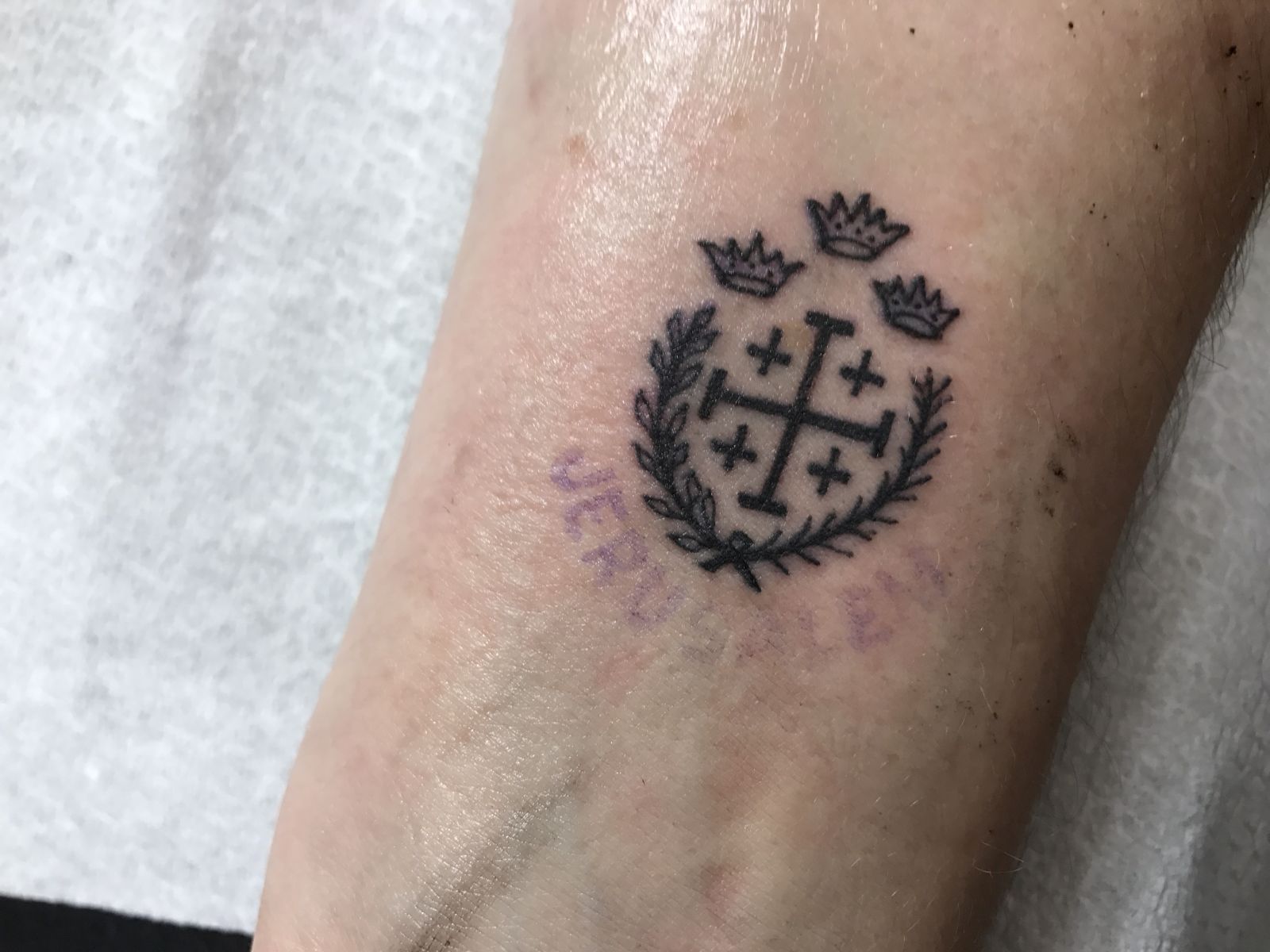
“My daughter and I have always talked about getting a tattoo together at some point in time. It’s a nice memory, a permanent memory of Jerusalem, of a trip we took together,” she says. “I like the symbolic meaning of the tattoo: Jerusalem being the center of the universe and the four crosses being the four corners of the world.”
The Canadian tourists were two of about 40 clients Razzouk was expecting on the day ISRAEL21c visited his studio.
From subculture to mainstream
The tattoo industry is booming. It’s the sixth fastest-growing retail business in the US, with revenues expected to surpass the billion-dollar mark by 2020, according to IbisWorld.
New tattoo parlors are popping up all the time in Israel.
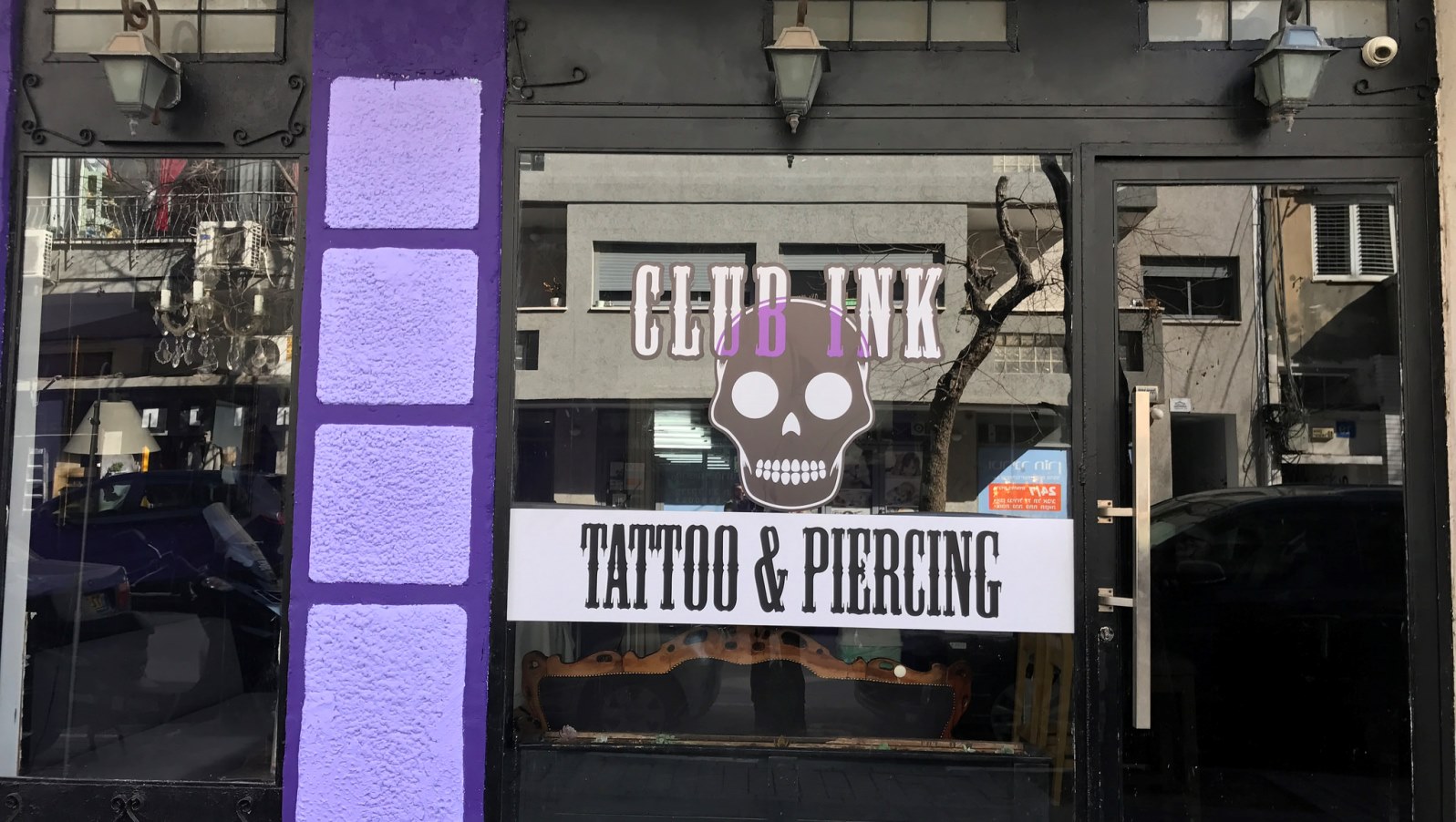
In 2016, Tel Aviv hosted its fourth Israel Tattoo Convention, drawing 44 local artists as well as over a dozen international master inkers.
Soon after the convention, an exhibition called “Tattoos: The Human Body as a Work of Art” opened at the Eretz Israel Museum in Tel Aviv, curated by veteran tattoo artist Yasmine Bergner.
One month later, a tattoo project called Healing Ink took place for terror victims at the Israel Museum in Jerusalem.
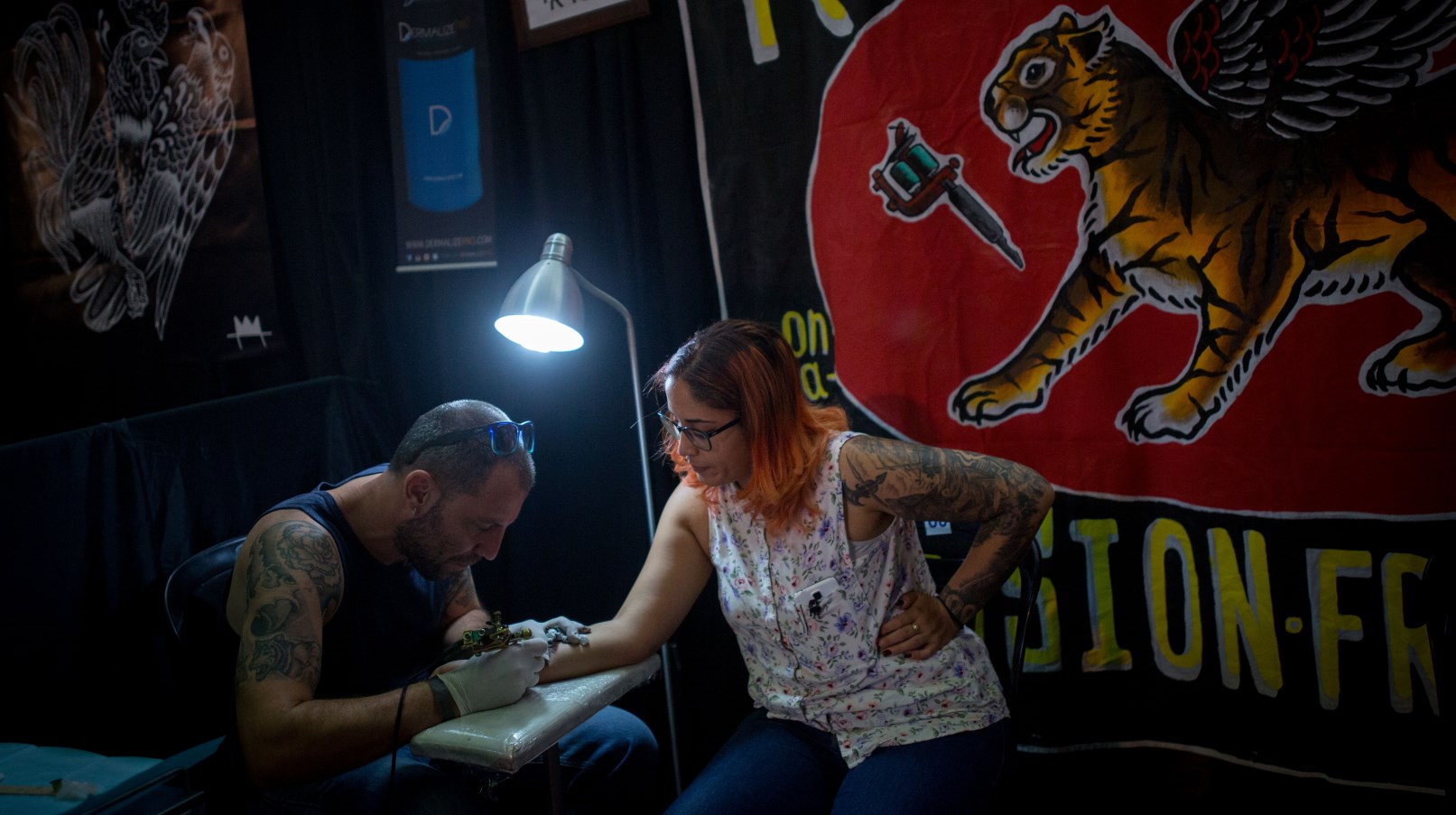
Whereas tattoos were taboo for many years because of the Holocaust and biblical and Koranic restrictions, for the last 10 years Israeli society has followed the world trend in accepting tattoos as part of mainstream culture.
In fact, the 2012 documentary “Numbered,” about Holocaust survivors with grayish-blue numbers tattooed on them by Nazis in Auschwitz, created a trend still common in Israel today in which grandchildren of survivors tattoo the numbers on their own bodies.
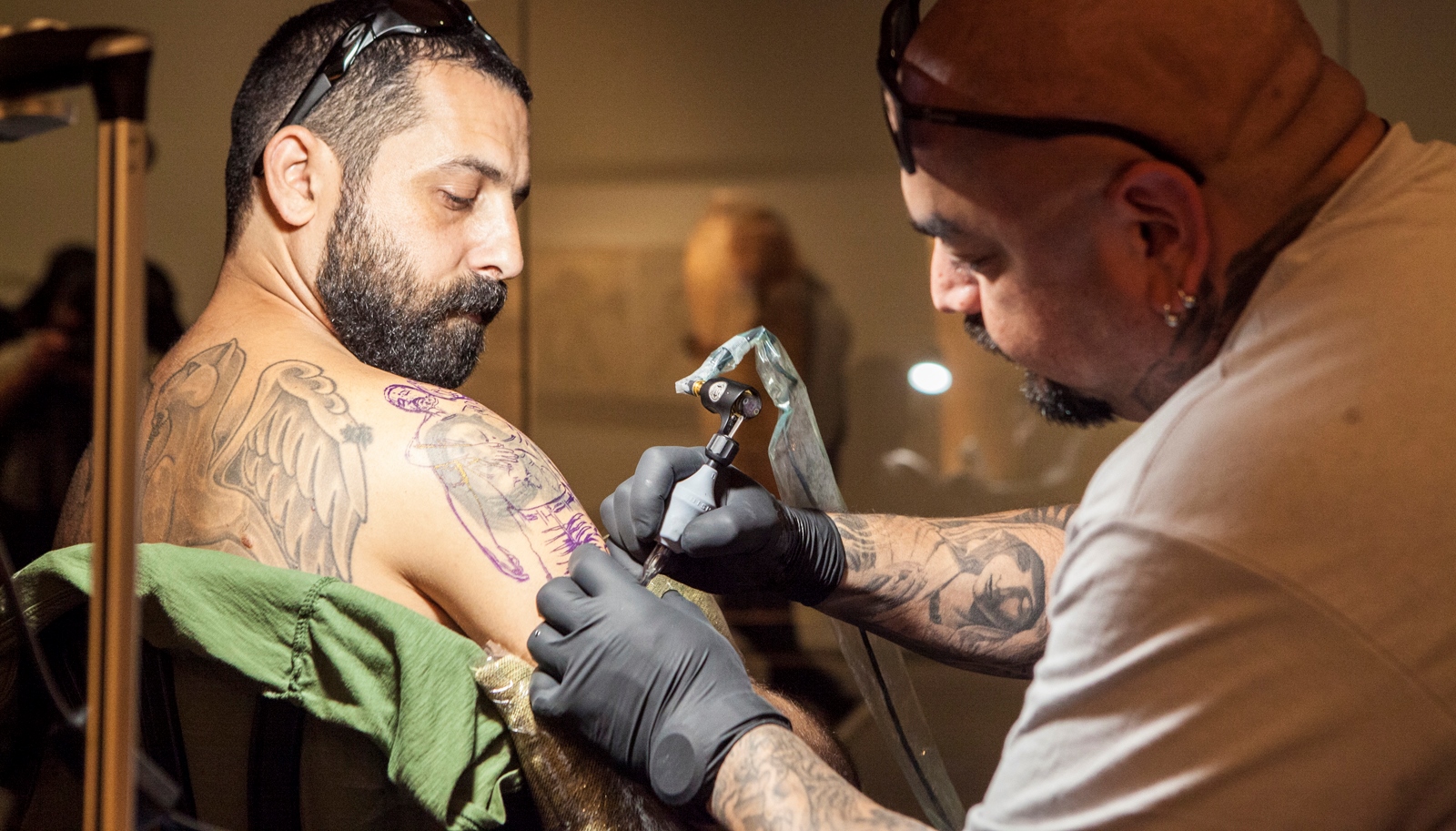
“All my generation knows nothing about the Holocaust,” Eli Sagir, who tattooed her grandfather’s number onto her hip at the age of 17 after a school trip to the Nazi death camps, told a New York Times reporter in 2012. “You talk with people and they think it’s … ancient history. I decided to do it to remind my generation: I want to tell them my grandfather’s story and the Holocaust story.”
A Jerusalem tattoo
Razzouk, a father of four, believes that the growing tattoo culture – from subculture to mainstream – has helped keep his family’s ancient trade popular.
“The extraordinary art that you see on the Discovery Channel or in competitions or online, super-realistic extraordinary tattoos, has created an extreme interest in tattoos,” says Razzouk. “And because of this exposure, people want to be more original and go back to the very authentic, pure, more basic art. Like the Coptic tattoos. They’re just line work, no shading, no colorful stuff. And people love it.”
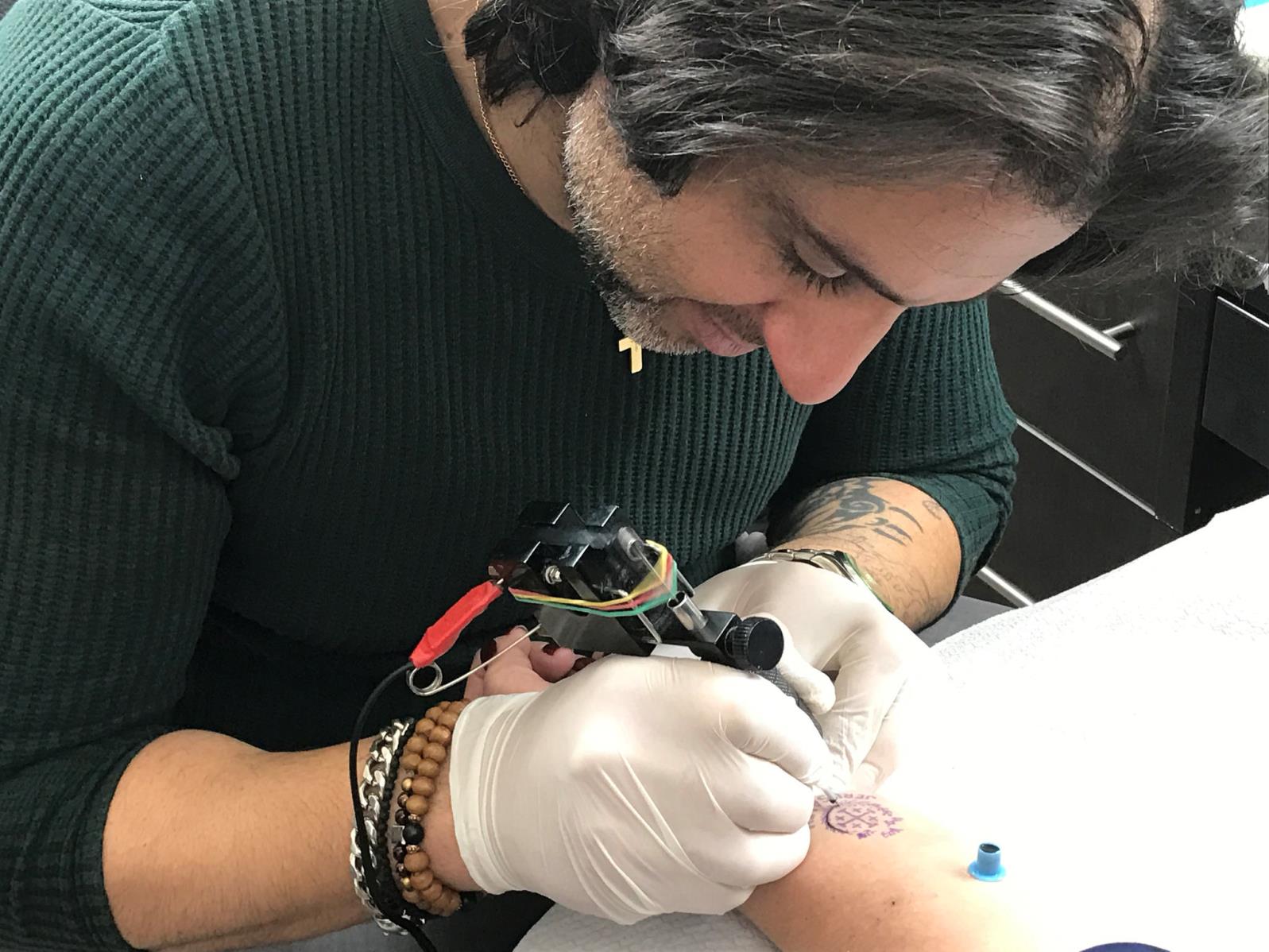
He’ll also ink any other image a client desires, including butterflies, mermaids, lions or skulls.
He and his tattoo artist wife, Gabrielle, note that over 90 percent of their business comes from tourists, though a growing number of Israelis and non-Christians are part of the clientele.
“I have had people who come from the US to Jerusalem only to get tattoos,” Razzouk tells ISRAEL21c.
With tattoo trends for 2017 featuring delicate lines, simple designs and a minimalist vibe, Razzouk Tattoo is finding that its ancient tattoos are still in vogue.













